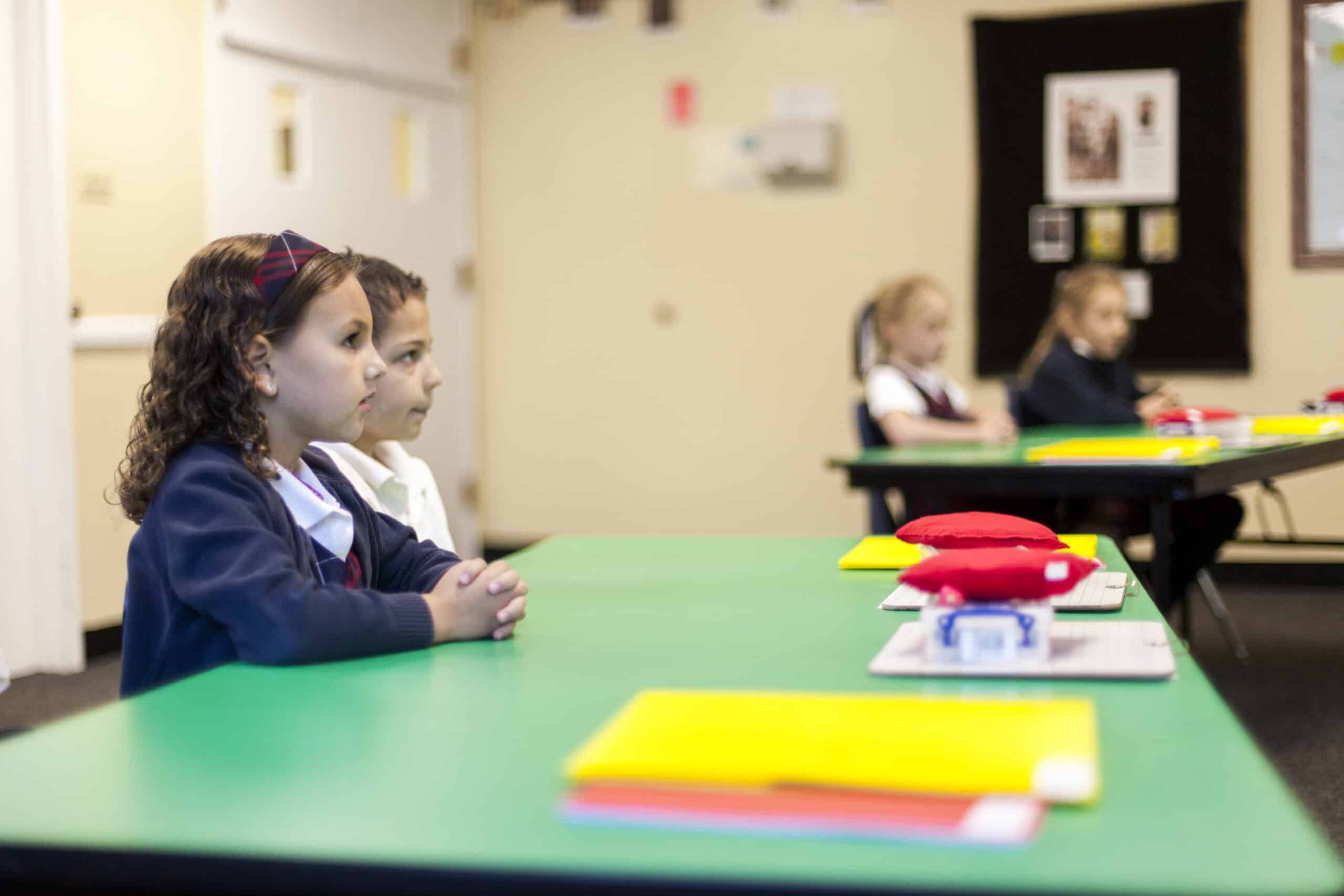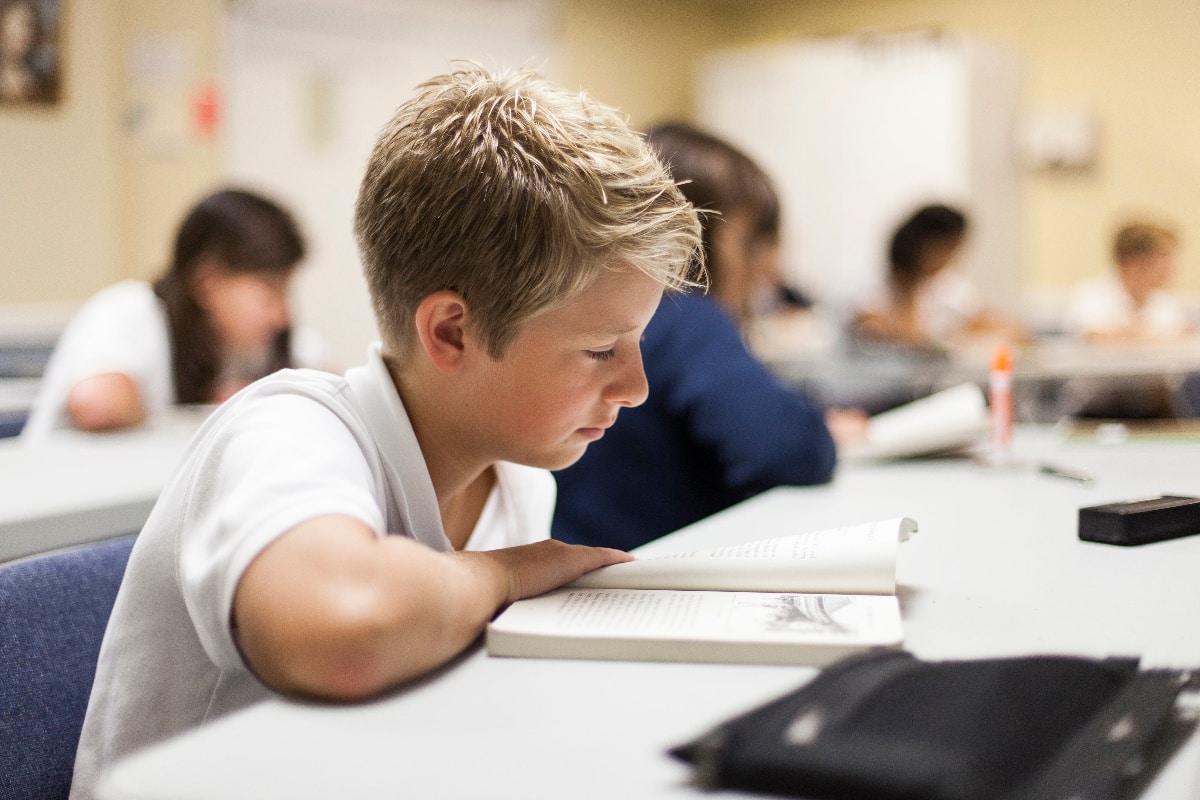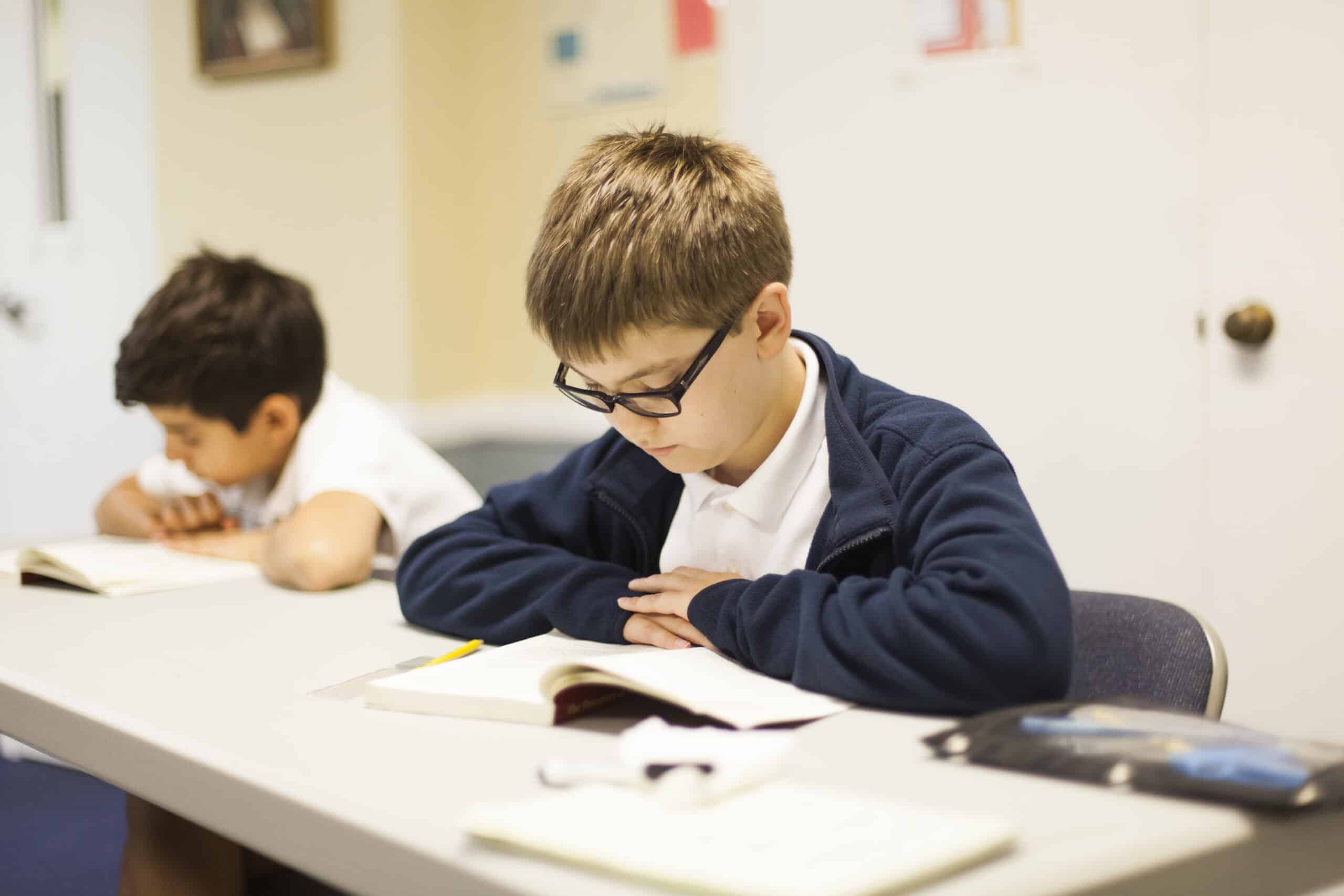“The teacher says my child isn’t paying attention well in school.”
Such a thought has put fear into the heart of many a parent. We instinctively know that paying attention is what students are supposed to do in school. When we hear that they haven’t been paying attention, we’re simultaneously worried and perplexed about what exactly we can do to help our child develop in this crucial area.
You would think that of the many things that modern educators and learning scientists could study, attention would be one of the most important. But it seems as if the faculty of attention has gotten short shrift. In an interview on the Learning Scientists website, Michael Hobbiss, a British researcher on attention, distraction, and cognitive control in adolescents, described how little focus there is among educators on the science of attention (pun intended). There’s a lot of conversation about how to grab students’ attention, but not so much on how attention actually works.
Of course, the research on the importance of attention for learning is unequivocal. The ability to focus directly correlates with accomplishment in virtually any domain of learning or life. As bestselling author Daniel Goleman puts it in his book Focus: The Hidden Driver of Excellence,
The science of attention… tells us these skills determine how well we perform any task. If they are stunted, we do poorly; if muscular, we can excel. Our very nimbleness in life depends on this subtle faculty. While the link between attention and excellence remains hidden most of the time, it ripples through almost everything we seek to accomplish. (2-3)
As parents who want the best for our children, that sort of claim should grab our attention, and cause us to sit up straight and listen up. Apparently, if you want excellence, you have to focus on the subtle faculty of attention.
Meanwhile, diagnoses of Attention Deficit Hyperactive Disorder have risen at the alarming rate of 66% in the last 10 years! (See article.) Maybe that’s just because we’re recognizing it more, but maybe we’re recognizing it more because it’s becoming more widespread a problem, as Daniel Goleman hypothesizes, even for us adults.
Addiction to the new media and screen time and the continuous partial attention that results, have caused some Silicon Valley companies to ban the use of cell phones and laptops during meetings.
The leaders of the 2005 All Things D(igital) conference actually made the bold move of unplugging WiFi in the main ballroom, because attenders were focusing on the glowing screens of their laptops rather than the presenters. Another disturbing trend can be seen among professionals who are self-medicating with drugs for ADD/ADHD and narcolepsy in order to focus well enough to get their work done (Goleman 8-9). Goleman quotes one of his doctors talking about how a lawyer was claiming that he couldn’t read contracts without such attention-boosting drugs—drugs that just a few years ago would have required a prescription.
Of course, there’s also Nicholas Carr’s best-selling book The Shallows: What the Internet Is Doing to Our Brains, where he presents the research and gives voice to what many of us are feeling: that all our web surfing and phone scrolling, with all the legitimate benefits, are registering in our brains and negatively affecting our ability to give attention to long-form books or stay on task for long blocks of time.
Our culture is clearly facing a crisis in attention.
My goal for this series of blog articles is to help us all focus on what Daniel Goleman calls the “subtle faculty” of attention under three headings: 1) Traditional Views of Attention, 2) The Science of Attention, and 3) Tips for Practicing Attention, closing with some reflections on how we can all grow in excellence through focusing better.
Traditional Views of Attention
In our age of electronic media, ADD/ADHD diagnoses and professional educators, the last place we might be inclined to look for help with our children’s need to focus is the past. But with the explosion of the classical school movement, that is exactly where more and more people are looking. The classical tradition calls to us with images of students sitting quietly reading a book, the beauty (and complexity) of long-form prose novels, and the attentive perseverance of great mathematicians and scientists.
When we look back to the tradition, we’re startled to find that attention has been a perennial problem in education. While new media may be making distractions easier to come by than ever before, children have needed to learn to pay attention for centuries. To narrow our focus a bit, let’s look at how John Locke and Charlotte Mason understood the nature of children. Then we’ll see how they connected attention and achievement as well as some practical takeaways that we can apply today.
John Locke on Training the Attention
In the past, educators devoted a lot of thought on how to train students in their ability to focus. For instance, John Locke, the famous Enlightenment philosopher, reflected that,
“The natural temper of children disposes their minds to wander. Novelty alone takes them…. They quickly grow weary of the same thing, and so have almost their whole delight in change and variety. It is a contradiction to the natural state of childhood for them to fix their fleeting thoughts.” (Some Thoughts Concerning Education 124)
What a relief to hear!
Before we work to change children to fit them for a task like school, it’s important to consider their nature. Too often children are not helped by adults’ unrealistic expectations of them. While we want our children to grow into full maturity (and as we’ll see, that includes the ability to focus), we need to start by recognizing where they are developmentally and note what behavior is natural to that age.
On a positive note, we should reflect on the fact that children are always interacting with new things (“novelty alone takes them”). One of their chief jobs early in life is to discover all the new things in the world around them and learn as much about them as they can. So, children’s natural state actually suits them well for the first part of their education, which is to get in touch with the whole world around them.
Well, since this is a child’s natural state, Lock concludes that,
“The great skill of a teacher is to get and keep the attention of his scholar; whilst he has that, he is sure to advance as fast as the learner’s abilities will carry him; and without that, all his bustle and pother will be to little or no purpose.” (125).
In other words, Locke recognized both that children do not by nature have the capability of giving sustained and focused attention to something, but also that it is necessary for teachers, tutors or parents to train them to do so. Locke also finds that attention is a necessary component for advancement in any serious learning. As we’ll see, this aligns perfectly with modern research on achievement and elite performance.
The goal of the teacher or parent should be to train and develop the attention span of their students. This goal exists not only because without the students’ attention, learning doesn’t happen as well as it could, but also because the students’ attention sets the natural limit to their progress. The more we can do as parents to help our children head off to school ready to pay attention, the more they can advance as fast as their abilities will let them.
Charlotte Mason on the Habit of Attention
In a similar way to Locke, Charlotte Mason, a British educator at the end of the 19th century, identified attention as the master skill or habit that students need to develop:
“First, we put the habit of Attention, because the highest intellectual gifts depend for their value upon the measure in which their owner has cultivated the habit of attention.” (Home Education 97)
Today, we rarely think of attention as an ability that can be cultivated. Instead, we regularly allow ourselves to be distracted. Unfortunately this continual habit of giving in to distractions has a negative long-term effect: it becomes harder and harder for us to focus. By the law of habit, you become what you regularly do. If you regularly allow yourself to be distracted, you become progressively more distract-able. If, on the other hand, you habitually focus intently on the task at hand, whether it’s deep reading or some other challenging task, you train yourself to become a more focused person.
Charlotte Mason reflects further on what exactly this so-called faculty of attention is and how we as parents and teachers can help students cultivate it when she says,
“Attention is hardly even an operation of the mind, but is simply the act by which the whole mental force is applied to the subject in hand. This act, of bringing the whole mind to bear, may be trained into a habit at the will of the parent or teacher, who attracts and holds the child’s attention by means of a sufficient motive.” (102)
Like Locke, Charlotte Mason thinks that children should be induced into fully paying attention for as long as they can handle and no longer. This way a student’s ability to focus can be trained and improved over a course of time.
Teaching the habit of attention should start in early childhood and can be trained by using the right enticements to learn. These enticements or motivators may include things like curiosity, the desire to please, or engaging a student’s sense of duty. Over time, paying attention becomes a habit. It becomes second nature for the child to give full focus to the task at hand.
Attention and Achievement
Charlotte Mason considers a trained attention a chief goal of education itself, since,
“whatever the natural gifts of the child, it is only so far as the habit of attention is cultivated in him that he is able to make use of them” (102-103).
In other words, Charlotte Mason, well ahead of her time, anticipated the research findings that tie focus to long-term achievement. Today we know that it’s not just a person’s “natural gifts” that count, but developing these gifts through focused practice in order to truly “make use of them.”
The key to successful learning lies in paying attention. Fortunately, attention is a skill or a habit that can be taught and cultivated. When this habit is applied it opens the door to successful learning.
Look out for two more blog articles to come on “The Science of Attention” and “Tips for Practicing Attention.” We’re also doing a webinar on this topic which you can sign up for below.
{{cta(‘4ef3296b-40ee-4a1e-9ae0-c3bde5ef4eaf’,’justifycenter’)}}
{{cta(‘50297b69-7b7b-4a2c-a336-d2b1c3946ad1′,’justifycenter’)}}






